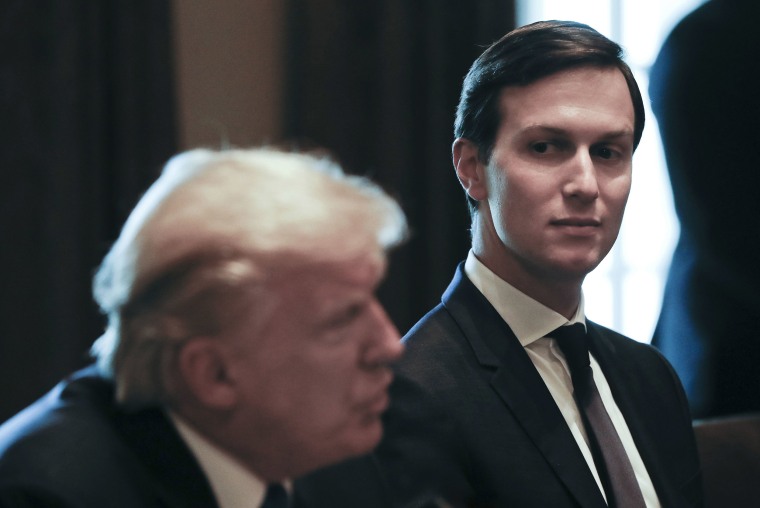Jared Kushner addressed reporters from the White House press briefing room yesterday, noting that the coronavirus crisis has helped reveal which leaders are "better managers than others." As part of the same set of comments, he added, "What a lot of the voters are seeing now is that when you elect somebody to be a mayor or governor or president, you're trying to think about who will be a competent manager during the time of crisis."
I strongly agree, though probably not in the way Donald Trump's 39-year-old son-in-law probably meant.
Kushner went on to say, "[T]he notion of the federal stockpile was it's supposed to be our stockpile. It's not supposed to be states' stockpiles that they then use." It was a declaration that seemed to bewilder practically everyone.
There was, however, a broader question lingering in the background? Why exactly was Kushner participating in the briefing at all? This was reportedly his first appearance at a coronavirus briefing and there was no explanation as to his precise role in the White House's response.
It was against this backdrop that Politico reported that the young aide is "taking charge" of key responsibilities.
What started two-and-a-half weeks ago as an effort to utilize the private sector to fix early testing failures has become an all-encompassing portfolio for Kushner, who, alongside a kitchen cabinet of outside experts including his former roommate and a suite of McKinsey consultants, has taken charge of the most important challenges facing the federal government: Expanding test access, ramping up industry production of needed medical supplies, and figuring out how to get those supplies to key locations.
The article added that Kushner has also set up shop at FEMA, where he and his associates "ride herd on the health agencies that had been criticized for their slow responses to the pandemic earlier this year." Team Kushner have also reportedly stepped in "to coordinate decision-making" at the FDA and the Centers for Medicare and Medicaid Services, putting the president's son-in-law in a position in which his authority "now exceeds" that of HHS Secretary Alex Azar.
One Republican close to the administration was quoted saying, "I don't know how our government operates anymore."
The New York Times had a related report, noting that Kushner has "made himself the point of contact for many agency officials." That's not necessarily good news:
Some officials said Mr. Kushner had mainly added another layer of confusion to that response, while taking credit for changes already in progress and failing to deliver on promised improvements. He promoted a nationwide screening website and a widespread network of drive-through testing sites. Neither materialized. He claimed to have helped narrow the rift between his father-in-law and General Motors in a presidential blowup over ventilator production, one administration official said, but the White House is still struggling to procure enough ventilators and other medical equipment.
It led the Times' Michelle Goldberg to note in her new column, "This is dilettantism raised to the level of sociopathy."
It is not, however, coming out of nowhere. There were already questions about who, specifically, is responsible for the White House's coronavirus response -- Mike Pence, Deborah Birx, and Alex Azar are all contenders for the job -- and we can apparently add Kushner's name to the mix.
In case this isn't obvious, let's go ahead and make it plain: Kushner has no relevant qualifications, knowledge, or expertise on this issue. He appears to have shifted his focus to the coronavirus response after a failed Middle East peace initiative -- another challenge for which he was unprepared -- which was part of an almost comically expansive policy portfolio.
If there's a compelling defense for such a dynamic, I can't think of it.

